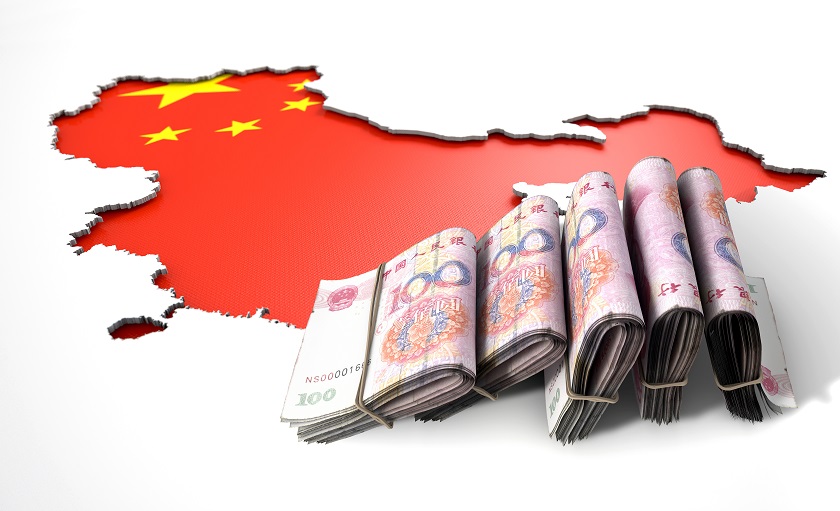China Fintech Today: The P2P boom is truly over

China Fintech Today is a roundup of news from one of the most innovative sectors of the Chinese economy: financial technology, or fintech. All links and information sources are Chinese media reports, websites, and social media posts. Above image via Peerform.

The end of the peer-to-peer boom
In 2018, the growth of China’s peer-to-peer (P2P) lending sector dramatically reversed: 1,407 internet platforms that offered P2P lending services shut down due to increased regulation between July 2017 and June 2018.
This year, the government has continued to lead a reorganization of the industry:
- More companies will die: As of February 17, only 60 percent of online lending institutions had disclosed their operational information for January 2019, including five problematic platforms.
- However, the current asset quality of the online lending industry has improved significantly according the data from firms that did report.
- As of the end of January 2019, the accumulated amount of the online P2P online loan industry was about 7.78 trillion yuan ($1.16 trillion). The total loan amount in January was 91.4 billion yuan ($13.61 billion), down 55.1 percent year-on-year and down 1.3 percent from the previous month.
- Further consolidation of industry players is certain. Some experts quoted in media reports predict that the scale of future online loans will continue to shrink because of regulation.
- Some listed companies, such as Aoma Electric and Panda Financial Companies, have abandoned their P2P businesses.
- Aoma Electric issued a letter of concern to the Shenzhen Stock Exchange on February 14, attributing the decision to the broader economic slowdown, and a high number of overdue loans.
- Panda Gold Control in 2018 was also dragged down by its P2P business, and expects a net loss of 41.16 million ($6.13 million) to 57.63 million yuan ($8.58 million) in 2018. Faced with the uncertainty of the P2P sector, Panda Gold Control chose to divest.
Aftershocks from the large number of poor loans, fraudulent business models, and company closures continue to reverberate within the financial system.
- On January 29, Jiangsu Provincial courts examined five cases of telecommunication network fraud, and sentenced 20 defendants, some to more than 10 years in prison. They were convicted for a criminal scheme under the auspices of the Fusion 360 Loan Platform, which encouraged individuals to apply for loans via WeChat. The defendants then defrauded victims of over 1.17 million yuan.
- On February 14, the National Public Credit Information Center released the annual financial blacklist report for 2018.
- Newly blacklisted entities were mainly concentrated in Shanghai, Beijing, Jiangsu, Fujian, Anhui, Guangdong, Shandong and other places with over half of the national total.
- Over half of these blacklisted entities are serious debt defaulters, 26.53 percent are illegal fund-raising enterprises, and the rest are untrustworthy venture capital enterprises, malicious borrowers, and other illegal businesses.
- 64.58 percent of the blacklisted enterprises were suspected of illegally absorbing public deposits, and 22.92 percent of the untrustworthy enterprises were suspected of fraudulently obtaining loans.

China is Fintech Leader of Asia — report
A new report (in English) from auditor KPMG on fintech says that China is leading the industry within Asia. (A PDF of the report, in English, is available here; links below are to Chinese articles based on the report.)
- Global fintech financing rose to $111.8 billion in 2018, a surge of nearly 120 percent from $50.8 billion in 2017, mainly due to large mergers and acquisitions.
- China led the Asian market with 83 transactions, worth a total of $18.2 billion. Among them, Ant Financial’s $14 billion transactions completed in the second quarter of last year stand out.
- KPMG predicts that further analyzes that in 2019, China’s technology giants will focus investment on the global market, while smaller financial technology companies in China will expand in Southeast Asia.
- KPMG ranked the world’s leading fintech companies in 2018. Tiger Brokers, an American and Hong Kong-based stock broker, topped the list of internet brokerages. Other companies on the list include Ant Financial, Jingdong Digital Technology, and Suning Financial.

Credit cards — the high cost of user acquisition, and Walmart
Some bank credit card departments in the industry are willing to pay up to 400 yuan in acquisition costs for each card-opening customer.
- As of June 2018, the number of internet users in China reached 802 million, an internet penetration rate of 57.7 percent. Much of the internet traffic is concentrated in the hands of a few giant companies, so banks face difficulties in locating new users.
- The banks are targeting people who have not previously accessed the internet in third- and fourth-tier cities, and those just out of school.
China Fintech Today is a biweekly column on The China Project.





